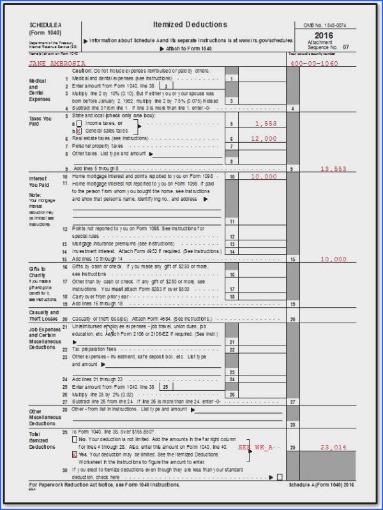Unsecured loans such as credit cards are prioritized last, giving those creditors the smallest chance of recouping funds from debtors during bankruptcy proceedings. An unsecured creditor, such as a credit card company, is a creditor where the borrower has not agreed to give the creditor any property such as a car or home as collateral to secure a debt. These creditors https://kelleysbookkeeping.com/what-is-the-effective-interest-method-of/ may sue these debtors in court over unpaid unsecured debts and courts may order the debtor to pay, garnish wages, or take other actions. A creditor or lender is a party (e.g., person, organization, company, or government) that has a claim on the services of a second party. The first party is called the creditor, which is the lender of property, service, or money.
- Tax debts and child support typically rank highest along with criminal fines, and overpayments of federal benefits for repayment.
- When a promissory note is required, the company borrowing the money will record and report the amount owed as Notes Payable.
- All ongoing correspondence of an IVA must first go through the appointed Insolvency Practitioner.
- Unsecured creditors are those that lend money without any collateral.
- In the UK, once an Individual Voluntary Arrangement (IVA) has been applied for, and is in place through the courts, creditors are prevented from making direct contact under the terms of the IVA.
- Put simply; creditors are people who are expecting debtors to pay them back.
A debtor is an individual or entity that borrows money from another individual or entity and needs to pay that money back within a certain time frame, with interest. For example, a person who borrows money from a bank to buy a house is a debtor. A creditor often Creditor Definition seeks repayment through the process outlined in the loan agreement. The Fair Debt Collection Practices Act (FDCPA) protects the debtor from aggressive or unfair debt collection practices and establishes ethical guidelines for the collection of consumer debts.
Examples of Creditors
When a debtor declares bankruptcy, the court notifies the creditor of the proceedings. In some bankruptcy cases, all of the debtor’s non-essential assets are sold to repay debts, and the bankruptcy trustee repays the debts in order of their priority. Secured creditors, often a bank or mortgage company, have a legal right to reclaim the property, such as a car or home, used as collateral for a loan, often through a lien or repossession.

Debt Collector XYZ then seeks to collect the entire $10,000 from John, which it is legally allowed to do. When a company goes into liquidation, the liquidator tries to settle as many debts as possible. The term comes from the word ‘credit,’ which in the financial and business world means the lending of money, a good or service. Usually, each creditor has a specific agreement with their debtors about the terms of payment, discounts, etc. They can also be card issuers such as Mastercard or Visa who lend credit to their customers which must be repaid with interest at the end of the month.
creditor Business English
Lenders without collateral, unsecured creditors have none of the debtor’s assets to seize if the debt cannot be paid. They retaliate when the debtor defaults on their payments by affecting the debtor’s credit rating and increasing interest on future loans. A creditor could be a bank, supplier or person that has provided money, goods, or services to a company and expects to be paid at a later date. In other words, the company owes money to its creditors and the amounts should be reported on the company’s balance sheet as either a current liability or a non-current (or long-term) liability. Creditors can include friends or family that you borrow money from and have to pay back. Unsecured creditors are those that lend money without any collateral.
Creditors often charge interest on the loans they offer their clients, such as a 5% interest rate on a $5,000 loan. The interest represents the borrower’s cost of the loan and the creditor’s degree of risk that the borrower may not repay the loan. In the financial world, we often refer to creditors when talking about short-term loans, mortgage loans, and long-term bonds. If the creditor is a vendor or supplier that did not require the company to sign a promissory note, the amount owed is likely to to be reported as Accounts Payable or Accrued Liabilities. In contrast, borrowers with low credit scores are riskier for creditors and are often charged higher interest rates to address that risk. To mitigate risk, most creditors tie interest rates or fees to the borrower’s creditworthiness and past credit history.
From credit to creditor
An important aspect of the creditor debtor relationship, debtors will sometimes file for bankruptcy when they are unable to repay debts. In this case, the creditor is notified by the court on the situation. Most commonly, the obligation owed is an obligation to pay money for some prior services or to pay off a loan. If you owe somebody money, that person is a creditor, and you are a debtor. The creditor has provided goods, services, or money to another party.
- SumUp Invoices allows you to view and track payments owed to your company.
- The interest represents the borrower’s cost of the loan and the creditor’s degree of risk that the borrower may not repay the loan.
- Some creditors are referred to as secured creditors because they have a registered lien on some of the company’s assets.
- In law, a person who has a money judgment entered in their favor by a court is called a judgment creditor.
- The first party is called the creditor, which is the lender of property, service, or money.
- The creditors will begin to deal with the Insolvency Practitioner and readily accept annual reports when submitted.
Borrowers with good credit scores are considered low-risk to creditors, and these borrowers often garner low-interest rates. A company’s employees may be creditors when the firm owes them wages and bonuses, as are governments (owed taxes). Also, in modern America, credit refers to a rating which indicates the likelihood a borrower will pay back their loan. In earlier times, credit also referred to reputation or trustworthiness. SumUp Invoices allows you to view and track payments owed to your company.
